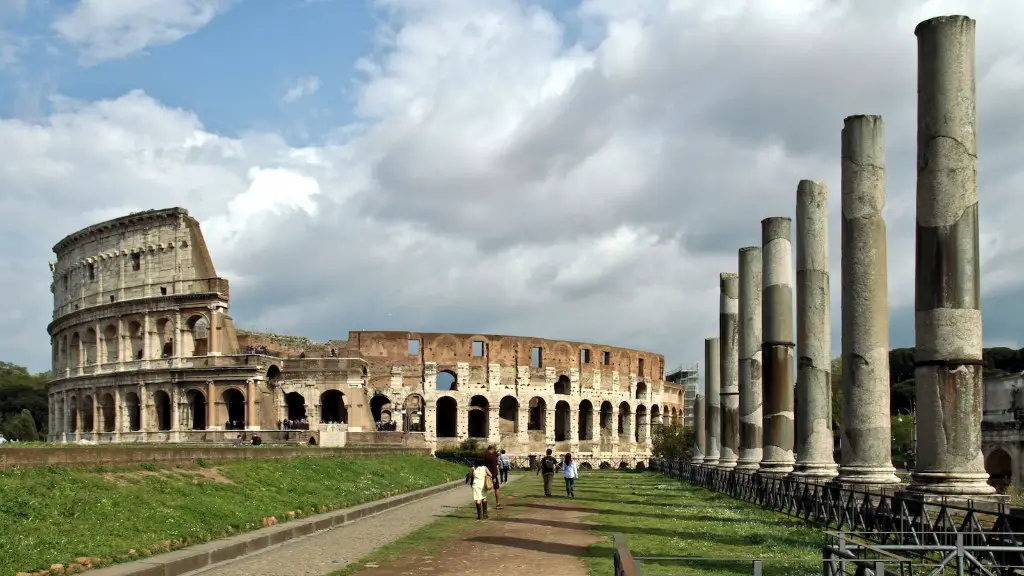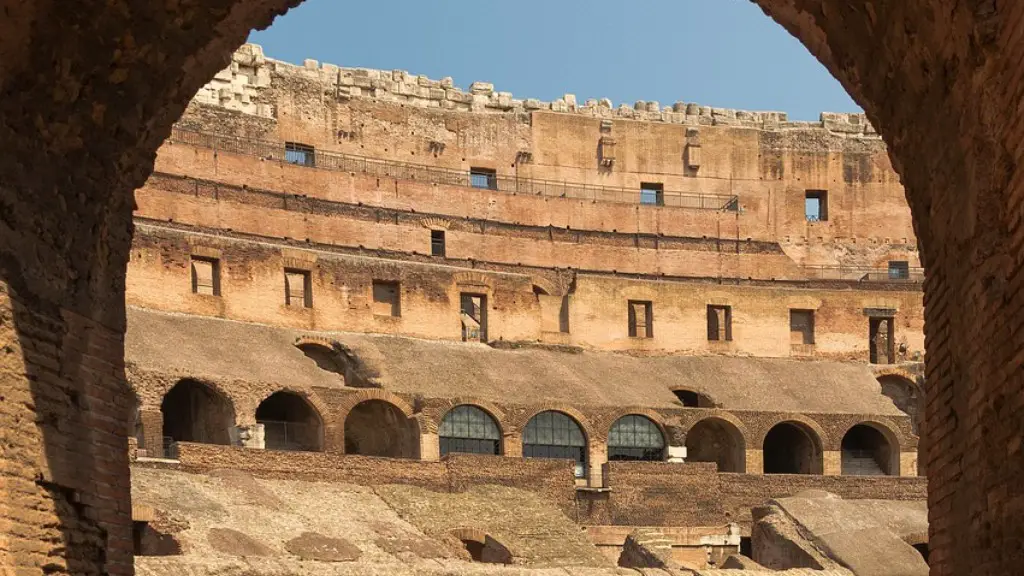Rome is famously known for their power and influence of the Latin language. During the time of the Roman Republic and Empire, Latin was at the core of the language spoken by its inhabitants. For centuries, Latin served as the language of international communication between the Roman Empire and other parts of the known world. It is well accepted that Latin, as it was spoken in Rome, was not the same as classical Latin as written by Roman authors, a difference that would have far-reaching consequences in the linguistics of the time.
Latin as a language in Rome, was primarily a spoken language. Though some scattered examples of written Latin appear during the Republic and Early Empire, the distinct form of Classical Latin that the Romans would come to be known for, did not appear until the late Republic and early Imperial period. It was during this period, when Rome was emerging as a superpower and classical literature began to be cultivated, that the Romans developed their own version of Latin, with its own distinct vocabulary, spelling, and grammar.
The features of the Latin language used by Romans were slightly different from the Classical Latin of authors such as Vergil and Cicero. It was more commonly used as an everyday language by people of all classes, including working class citizens and, as such the Latin of Rome included the everyday vocabulary and expressions of those who spoke it. Grammatically, the Latin of Rome was a simplified version of classical Latin, with inflections and verb conjugations becoming less important, and verbal syntax becoming more important.
With the vast majority of the Roman Empire’s population living in cities and towns, many Roman citizens were bilingual, speaking both Latin and the regional language, now referred to as Vulgar Latin. These regional languages were often adopted by native Romans who had no need or desire to learn the Latin of Rome.
Vulgar Latin, the languages spoken in the regions outside of Rome, became the lingua vulgari from which the Romance languages, such as Italian and French, would eventually emerge. The differences between classical Latin and the Latin of Rome were slowly magnified over time as the Vulgar Latin styles interacted with each other and with the subsequent Roman languages.
The Roman Empire, with its varied population and geographical span, laid the foundation for the development of a wide range of languages. As Latin gradually changed and evolved away from the Latin of Rome, other languages rose in prominence, such as Gothic and Germanic, to name just two. It is the legacy of the Roman Empire that has led to the linguistic diversity of the world today.
Influence on Today’s Languages
The influence of Latin of Rome on today’s languages can still be felt in many areas. For example, many universities around the world still require students to have a working knowledge of Latin in order to complete their studies. Latin words continue to be used in many of our Romance language-based languages as well as in English, making Latin not only influential in our modern languages, but also foundational.
In English for example, we can track the Latin of Rome to some of our most common words, such as aqua, the root of our word “water”. Similarly, Latin is still seen in many legal, scientific, and medical terms. There is no denying the presence of Latin in many of our everyday spoken and written words.
From the study of Latin we are also able to gain insight into the lives and cultures of the Romans, as well as other civilizations with which the Romans were in contact. Through the study of inscriptions, ancient texts, and even graffiti, we can gain a better understanding of the people and the language that they used.
The importance of Latin of Rome must not be underestimated. As a language, it was influential in international linguistic conventions, telling us much about the languages of the past.It has left an indelible mark on our modern languages and systems, and is still considered to be an important part of any education. Latin of Rome has truly withstood the test of time.
Growth of Latin Language
The Latin of Rome underwent a great deal of change and refinement over time. During the period of imperial expansion, influence was brought by the various areas of the Roman Empire, such as Greece and Egypt, with even French and Spanish dialects being heard. Latin dialects other than the original Latin of Rome began emerging in different parts of the empire.
These dialects, such as Old Latin, Classical Latin, and Vulgar Latin, emerged as the language blended with its local variants. Vulgar Latin served as the literary language of many of the Roman provinces, and its influence would later be seen in the Romance languages that were spoken in those regions after the fall of the Roman Empire.
As the Roman Empire grew in power and influence, so too did the spread of Latin. It was eventually used as a common language among the provinces and was also used by Roman soldiers and conquerors in their dealings with people of other nations. Consequently, it became the language of communication for those in the military, for traders, and for travelers.
Because of the great amount of Roman contact with other lands, cultures, and languages, Latin absorbed many words from the local dialects. This process was not unique to Latin, but had its own unique character, known as conscious and unconscious language evolution. This evolution allowed Latin to become one of the most versatile and adaptable languages of the ancient world.
Latin in Religion and Education
Latin also played a major role in the religious and educational aspects of the Roman Empire. It was used in religious rituals and ceremonies, as the language of church documents, and in the training of priests. Education in the Roman world was highly valued, and Latin was used as the language of instruction in schools across the empire.
Latin also played an important part in government proceedings and public affairs. Latin was used in formal diplomatic and political communications, as well as in the issuing of laws and decrees. Public announcements were commonly made in Latin, as were most public legal documents such as contracts and court rulings.
Through this we can also see the profound influence that Latin of Rome had on literature during the time. Works such as Dante’s Divine Comedy, Milton’s Paradise Lost, and Virgil’s Aeneid were all written primarily in Latin―the language of Rome, and the basis for the modern Italian language. Hence, the Latin of Rome stands out as the primary language of the Roman Empire, and continues to be influential in the present day.
Decline of Latin
Though Latin was the language of the Roman Empire, it slowly lost ground as the empire declined. In the 5th century AD, the Roman Empire split into two, with the Latin-influenced parts of the west being called the Western Roman Empire and the non-Latin influenced parts of the east being called the Byzantine Empire, leading to the gradual decline of Latin in the west.
This decline was even more accelerated due to the emergence of other languages, such as Germanic and Gothic. The official language of Rome was eventually replaced by the Latin-influenced vernacular languages, such as Italian, French, and Spanish, each of which in turn became the language of culture and education in the various regions of the former Roman Empire.
Despite the decline of Latin in everyday life and government, it managed to remain relevant in the areas of science and education. Latin was still seen as a necessary language of scholarly discourse and was used in the way that English is used in the sciences today. Consequently, Latin’s influence has been carried on through its Vocabulary, which has been adopted and adapted by its modern descendants.
Latin’s Legacy
The legacy of Latin of Rome is still present in the modern world, even though it is no longer spoken as a vernacular language. The languages derived from Latin, such as English and the Romance languages, are some of the most popular and widely spoken languages in the world.
The Latin of Rome also continues to have a great influence on many aspects of our lives today, from the sciences and legal systems to education and international diplomacy. Even though Latin is no longer spoken as the main language in the region of the former Roman Empire, its influence on our modern languages and cultural heritage cannot be overstated.
The Latin of Rome was an integral part of the Roman Empire, and its influence lives on even today. From the language’s profound effect on how we talk, write, and think to the countless words it has added to the English language, the Latin of Rome will continue to hold an important place in our history.





